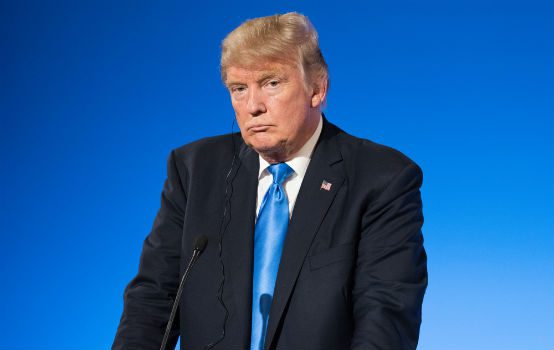No, Trump Is Not a ‘Realist’

Walter Russell Mead is the latest to abuse the term realist to describe Trump’s foreign policy:
The president is a realist who believes that international relations are both highly competitive and zero-sum. If Iran and Russia threaten the balance of power in the Middle East, it is necessary to work with any country in the region that will counter them, irrespective of its human-rights record. The question is not whether there are political prisoners in Egypt; the question is whether Egypt shares U.S. interests when it comes to opposing Iran.
Realist is probably the most overused and misused label in foreign policy discourse today. It has become a catch-all term to describe everyone from Obama to Trump, and if it means anything it doesn’t accurately describe half of the people that it is applied to. Applying it to Trump gives him too much credit and reduces realism to a caricature of itself.
Trump makes his foreign policy decisions out of a combination of irrational and reflexive impulses rather than out of any careful consideration of U.S. interests. He is fixated on military power at the expense of everything else, and has shown nothing but disdain for diplomacy and the people that practice it. Virtually no one who self-identifies as a realist wants to claim Trump, and most realists oppose most or all of Trump’s foreign policy.
Trump has sometimes used the phrase “pragmatic realism” to differentiate his policies from his predecessors, but as any casual observer can see there has been nothing pragmatic or realistic about his positions. Trump has wholeheartedly embraced the Saudis at the very moment when they are becoming a destabilizing regional menace. He rejects the nuclear deal that successfully constrains the Iranian nuclear program and threatens to damage relationships with major allies in his bid to renege on it. He backs out of international agreements when it would be less costly to remain in them, and he makes threats that he cannot back up without courting catastrophe. Whatever that is, it isn’t recognizable as realism.
Mead’s statements in the rest of the quote raise a number of questions. Why is it the responsibility of the U.S. to maintain a balance of power in the Middle East? Which U.S. security interests are served by taking one side in the region’s bitter rivalries? Are U.S. clients actually effective and worth supporting, or does support for them cost more than they have to offer? The real question is whether U.S. clients are valuable enough to justify the extensive assistance they receive. Both Egypt and Saudi Arabia are less useful to the U.S. than they have been in the past, and the U.S. gets little or nothing for the trouble of supporting them.
Surely a realist is interested in these relationships primarily because of how they benefit the U.S., and when they start costing too much a realist would have no problem downgrading or ending those relationships. Meanwhile Trump gives U.S. clients a blank check and gives them whatever they want without requiring anything in return. If he believes that international relationships are all zero-sum games, he has an odd habit of putting the U.S. at a disadvantage again and again.
As usual, Mead’s assessment of the current state of affairs is wrong. He refers to “Iran’s Russia-assisted march toward regional dominance,” but there is no such thing. Russia and Iran have rallied to support their only ally in the region, and in doing so they have succeeded in preventing the defeat of the Syrian government. That is as far from a “march toward regional dominance” as it is possible to get. Iran’s supposed “dominance” amounts to preventing a major loss at considerable expense. Whenever the war in Syria is finally over, all that Iran will have done is hang on to an ally that it already had. No one state in the region is capable of exercising the kind of dominance Mead is talking about. The fear of Iranian regional hegemony is a fantasy, and I would submit that any policy recommendations informed by such a fantasy are not going to be very realistic.
Comments